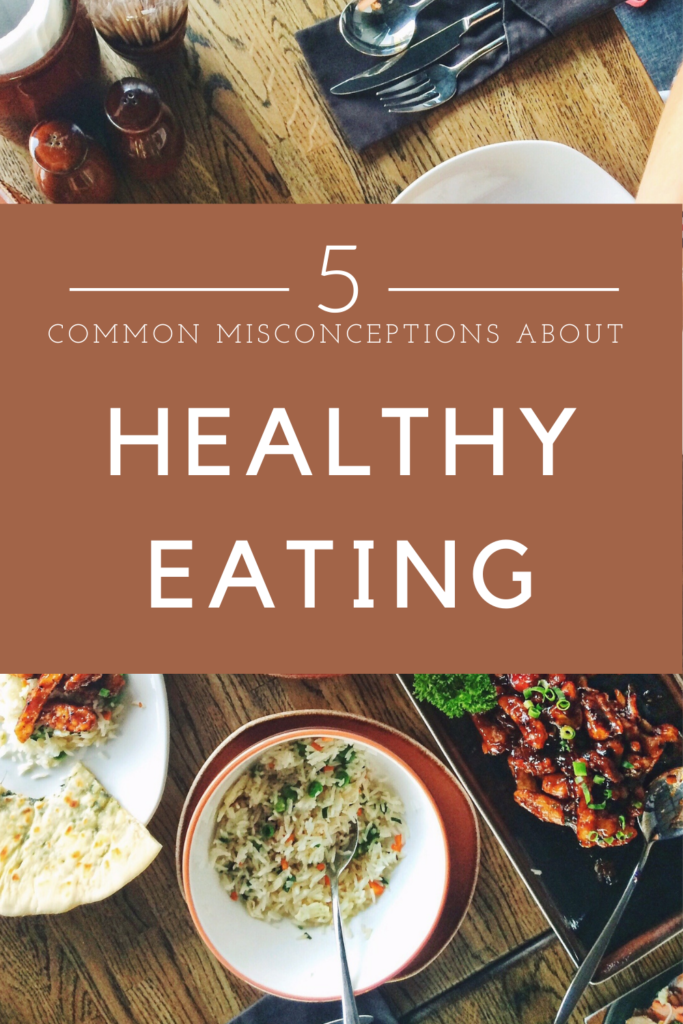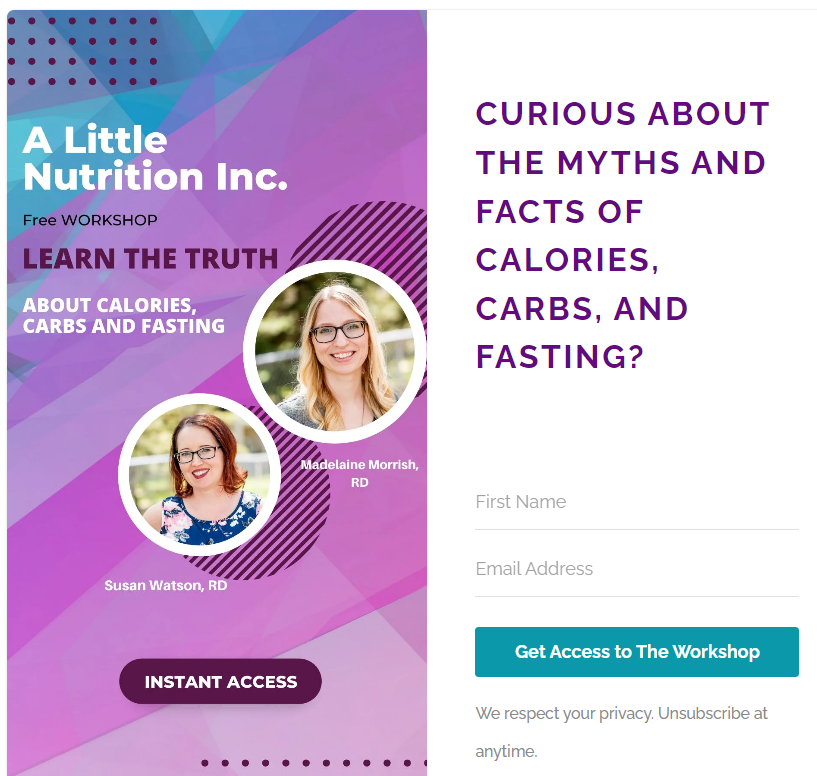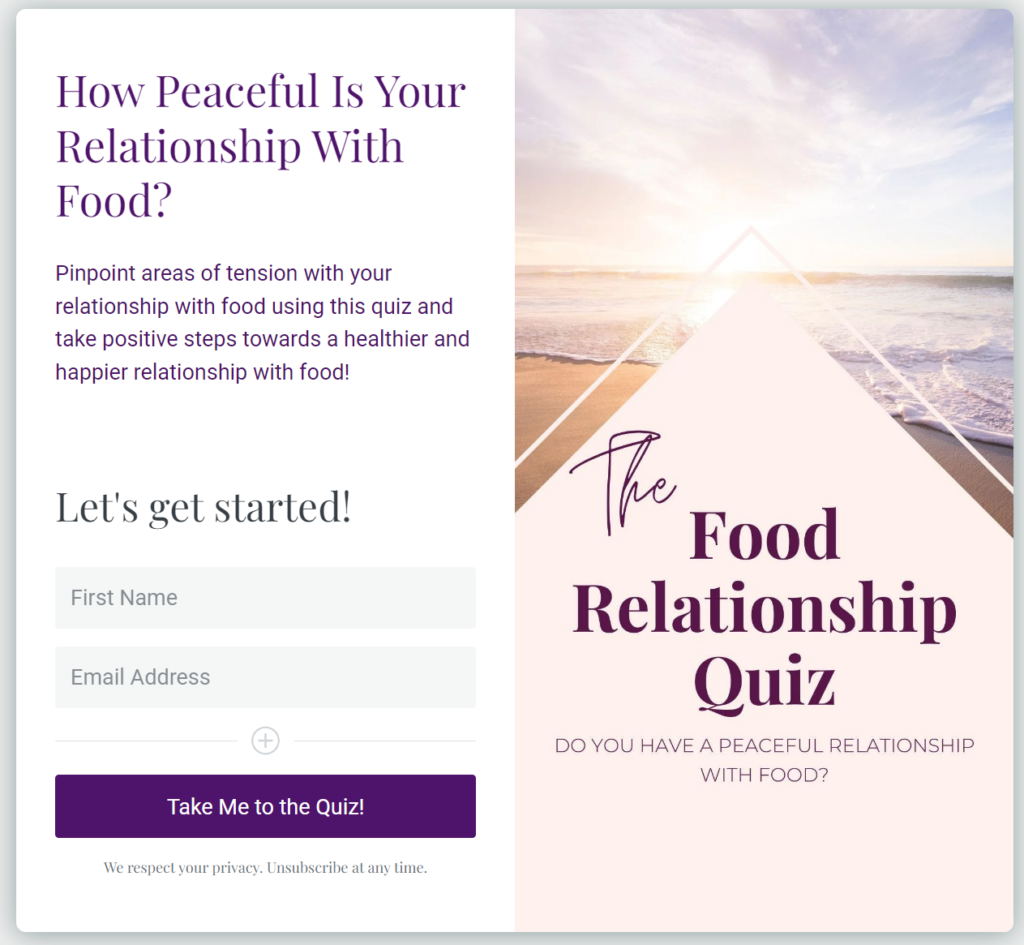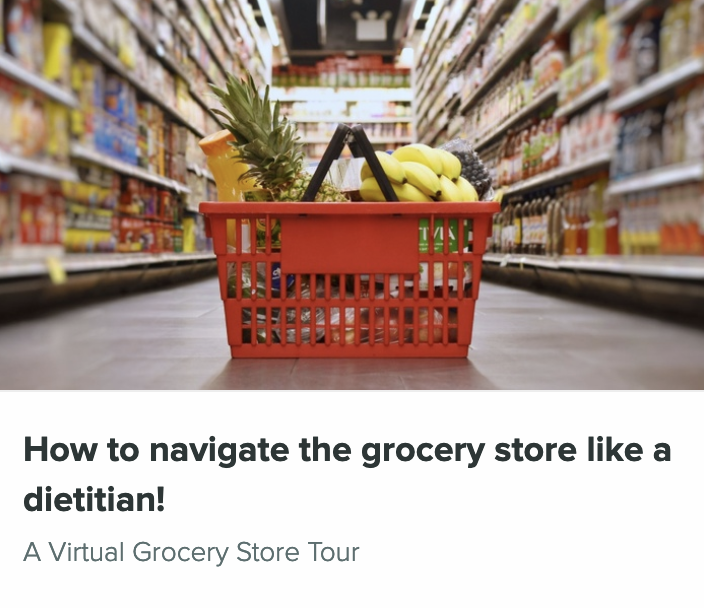Did you know that March is National Nutrition Month here in Canada? This year’s theme centers around the idea that healthy eating looks different for everyone.
Our Registered Dietitian Susan Watson, was featured on Global News Winnipeg debunking some misconceptions about what ‘healthy eating’ is or isn’t. She advocates that there is no one-size-fits-all philosophy for healthy eating. What is good for one person might not be good for another.
Healthy Eating Misconceptions
#1 – You need to lose weight to be healthy
This is a big misconception in our society and little evidence shows that weight loss makes someone healthy. In fact, engaging in restrictive eating can cause more negative health impacts and harm. Better health outcomes result from behaviours such as eating balanced meals, joyful movement, sleeping regularly, and reducing stress.
#2 – You can’t eat past a certain time at night if you want to be healthy.
This is far from the truth. Eating early in the evening can be challenging for some. Depending on the circumstances of your personal life, you may be working late or working shift work. The key is to honour your hunger rather than the clock. Strive for 3 meals a day with 2-3 snacks.
#3: A gluten–free diet is healthier
Going gluten-free isn’t healthier for you unless you have a medical condition like celiac disease or a gluten intolerance. Gluten-free foods are often lacking in fibre, essential vitamins and nutrients, and tend to be more expensive.
#4: Fresh fruits and vegetables are healthier than frozen.
Frozen produce is mostly picked and frozen at the peak of ripeness, whereas some fresh produce is picked under ripe. Nutritionally, they are both are equal so choose what works for you. Buying frozen is convenient since you don’t have to worry about washing and chopping.
#5: Healthy Means Low Fat
Not all fats are the same, and some are actually very healthy.
Fats help us feel full and satisfied. So when we cut out fat, we often feel unsatisfied and hungry in a matter of hours. In addition, low-fat foods tend to be higher in sodium and sugar, so they’re not necessarily healthier.
“The best pattern of eating is one that fits your unique lifestyle. It is one that is full of variety, is pleasurable and promotes a sustainable satisfying way to eat..”
Watch the Global News Segment Here or Read the full transcript below.
Full Transcript of Global News Winnipeg, Interview with Dietitian Susan Watson.
Abigail Turner, Global News Morning Reporter:
Well, March is nutrition month, so there really isn’t a better time to talk about misconceptions of healthy eating. So this morning we’re bringing in Registered Dietitian, Susan Watson, from A Little Nutrition, to help debunk some of those myths and Susan, there is so much advice out there, or opinions, I guess, online about what’s really healthy and what’s not. But I guess it’s not all one size fits all.
Susan Watson, Registered Dietitian:
Yeah. That’s the theme of this year’s nutrition month. I really like it because it’s all about this idea that there is no one-size-fits-all for nutrition and it’s really the backbone of my business because we can’t just give the same nutrition advice to all of our clients. It’s individualized, it’s tailored and that’s because we have lots of different life experiences. We come from different cultures. We’ve got different personal taste preferences or health conditions and work schedules. So, healthy eating has to be customized and there is no one-size-fits-all. There are lots of different ways to be healthy and it’s based on your personal circumstances.
Abigail Turner, Global News Morning Reporter:
Now, another misconception I want to talk about is you have to be thin to be healthy. I think that, especially in magazines or online, is something people associate healthiness with.
Susan Watson, Registered Dietitian:
Absolutely. I’m going to go over four different misconceptions. We’re going to start with that one that there is an idea of having to lose weight or be thin to be healthy. And the reality is when we go on a restrictive eating pattern or cut out certain food groups, it does more harm than good. And if we focus on health behaviours that are positive, like balanced meals and adding in things like fruits, vegetables, fibre and protein, we’re going to be a lot healthier. Especially focusing on things like regular exercise and moving our body joyfully, focusing on stress and sleep. Those are really the keys that we focus on with weight loss. Achieving a certain ideal body shape has nothing really to do with health.
Abigail Turner Global News Morning Reporter:
Now, this next myth you have, I have to say, I’m guilty of this. It’s that you can’t eat late at night to be considered a healthy person.
Susan Watson, Registered Dietitian:
Well, and that’s interesting that you say guilty because your schedule Abigail, is probably way different than my schedule, so I can’t give you the same advice that I would take myself because you have to get up early to be on the show. So this idea that we can’t eat past a certain time, or that it’s bad, is completely wrong.
What we want to look at doing is having the healthy behaviour of eating three meals a day, two to three snacks and spacing them out appropriately. About every three to four hours. And if we’re hungry, we want to honour that hunger. We don’t want to deny it because that means our body needs fuel. So definitely debunk that myth.
Abigail Turner Global News Morning Reporter:
All right, good to know. The next one you have, Susan is avoiding gluten.
Susan Watson, Registered Dietitian:
I hear about that one all the time that you have to cut out gluten to be healthy and that’s just not true. If you have to have a health condition like celiac or gluten intolerance then cutting gluten might be beneficial for you but if you don’t have those conditions, you’re missing out on key nutrients. And definitely, it’s a lot lower fibre pattern of eating.
Abigail Turner Global News Morning Reporter:
All right. And this next one we have, Susan is about fresh fruits and vegetables. Can you explain what you want to talk about there?
Susan Watson, Registered Dietitian:
Yes, absolutely. So I hear this conception like, “Oh, I only eat fresh vegetables and you know that that’s healthier,” and it’s not. Frozen vegetables are picked in their prime peakness and flash frozen, then brought to the store. Whereas sometimes especially this time of year, our fruits and vegetables are picked under-ripened and are of a different quality. So fresh and frozen equal nutrition.
Abigail Turner Global News Morning Reporter:
Okay, and one last one, before we let you go, Susan. Let’s talk about fat. When you see that word you obviously, me personally, I’m a little bit terrified of the word fat when I read it on the nutrition label, but maybe that’s not a bad thing?
Susan Watson, Registered Dietitian:
It’s definitely not. So actually low-fat food products take out the fat and then put in sometimes sugar and sodium and so it may actually backfire on you. And fat, especially healthy fats that I’ve got here, like healthy oils and nuts and seeds and avocados, have this satiating feeling, they make you feel fuller longer. You want to make sure you’re always including a little bit of fat into all of your meals that way you don’t end up having food cravings and feel like you’re crashing after a meal.
Need some personalized help with healthy eating?
HOW DO I BOOK AN APPOINTMENT WITH A REGISTERED DIETITIAN?
- To book an appointment with one of our Registered Dietitians or therapists, you can:
- Phone: 204-515-7466
- Email: admin@alittlenutrition.com
- Book online: https://alittlenutrition.janeapp.com
Save For Later

GET OUR HABIT TRACKING TOOL!
Sign up and we will be deliver it right into your inbox!







